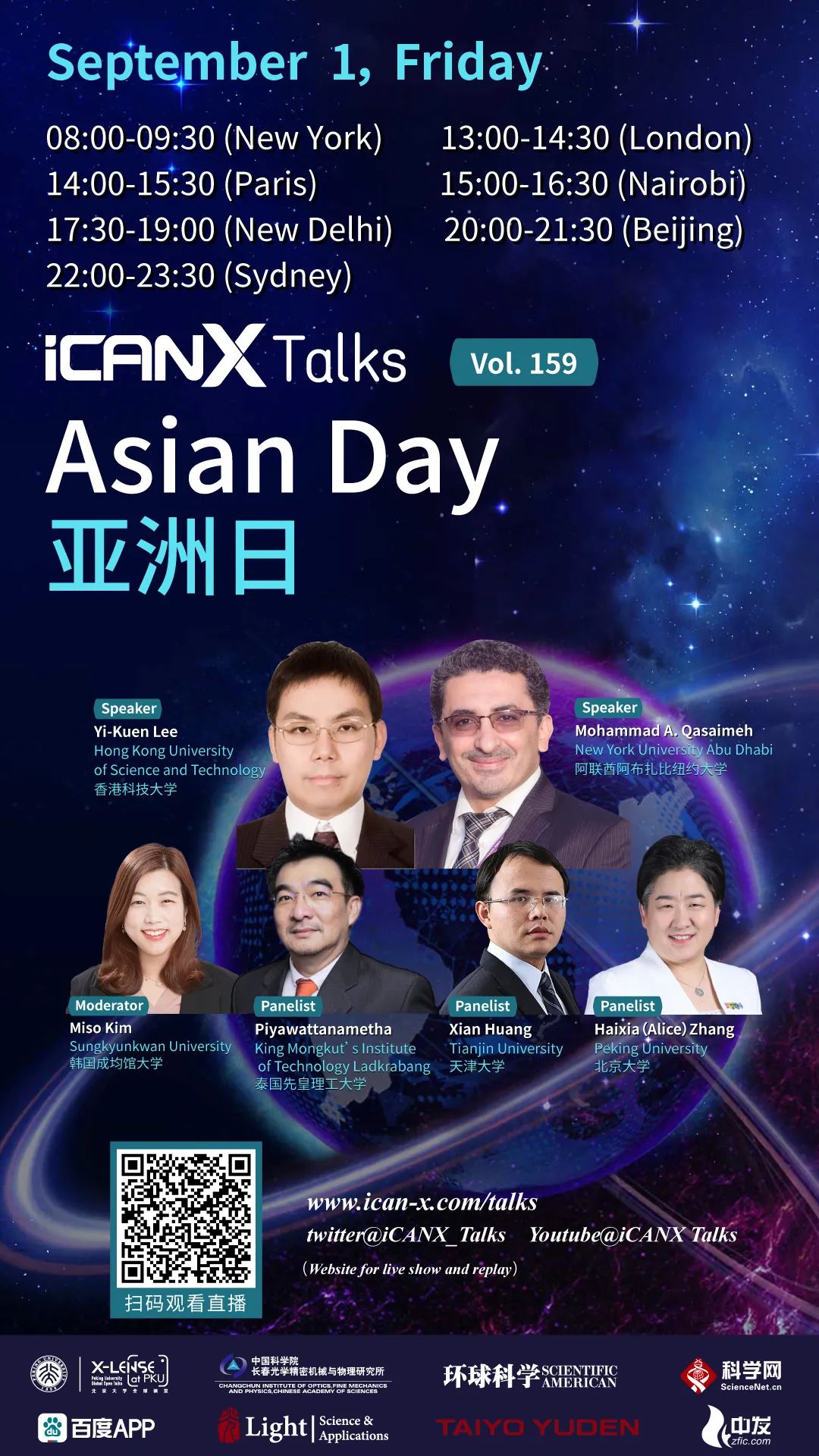Speaker: Yi-Kuen Lee, Hong Kong University of Science and Technology
Panelist: Haixia (Alice) Zhang, Peking University
Time: 20:00 p.m., September 1, 2023, GMT+8
Venue: Scan the QR code to watch online
Abstract:
Circulating Tumor Cells (CTCs) are pivotal markers for metastasis, playing a significant role in cancer progression. Despite the surge in microfluidic and nanotechnologies aimed at isolating and detecting CTCs, their integration into routine clinical practice remains challenging. This is attributed to the heterogeneity of CTCs across patients, their low prevalence in blood, and the need for robust and clinically dependable detection systems. To surmount these obstacles, we introduced the groundbreaking personalized Microfluidic Elasto-Filtration (pMEF) chip technology, leading to the development of the holistic pMEF system. This innovative approach harnesses the interplay between blood fluid mechanics and hyperelasticity principles. By optimizing the Capillary number-based MEF technology, it anticipates the unique deformations of CTCs. Furthermore, it incorporates biophysical data from patient samples to determine individualized MEF parameters. Collaborations with multiple hospitals have confirmed the system's exceptional clinical sensitivity and specificity across a spectrum of over ten cancer types. To further enhance the clinical efficacy of the pMEF system, we are integrating deep learning models (DLM). These models delve into novel CTC biomarkers within the vast dimensional space of DLM and explore potential label-free DLM techniques. This integration facilitates the meticulous analysis of extensive clinical datasets, ushering in a more nuanced and accurate cancer diagnosis. Our initial clinical trials, which capitalize on the combined prowess of pMEF technology and DLM, are set to meet the rigorous standards established by FDA guidelines. As we continue to incorporate more clinical data, the combined force of pMEF and DLM stands at the cusp of transforming clinical cancer diagnosis, laying the groundwork for bespoke treatments in the near future.
Biography:
Prof. Yi-Kuen Lee received his BS & MS degrees from National Taiwan University, a Ph.D. degree in MEMS at UCLA in 2001. He has been a tenured professor in Mechanical & Aerospace Engineering and Biomedical Engineering at HKUST and the executive committee of Hong Kong ITF funded international reseach center (HKCRC). He was Visiting Associate at Caltech in 2010-2011. His current research topics include CMOS MEMS sensors and microfluidics for smart buildings, smart manufacturing and global health. He was the President of Hong Kong Society of Theoretical and Applied Mechanics (HKSTAM) in 2012–2014. He was the co-founder of IEEE NEMS Conference; TPC of IEEE MEMS 2007; TPC of APCOT 2012-2014, TPC of IEEE NEMS 2013, Transducers 2013, 2015, co-chair of ICMAN 2011. He has published over 200 international journal and conference papers. He was the Associate Editor of Microfluidics and Nanofluidics (Springer-Nature). He is on the editorial board of Micronanoelectronic Technology and Bio-Design and Manufacturing (Springer-Nature). He co-chaired Asia-Pacific Conference of Transducers and Micro-Nano Technology (APCOT 2018), Hong Kong in 2018. He is also the Executive Technical Program Committee of 2023 Transducers, Kyoto, Japan, June 2023.
Source: iCANX
